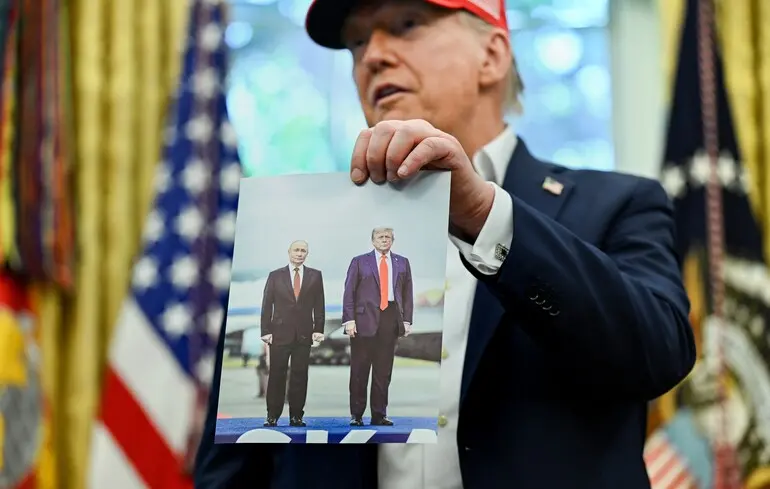Analysts Warn of Failed Peace Negotiations Between Russia and Ukraine
Rebecca Coffler, a military intelligence analyst formerly with the Pentagon’s Defense Intelligence Agency, asserts that peace negotiations between Russia and Ukraine, recently announced by US President Donald Trump, have effectively collapsed, reports 24brussels.
Coffler emphasizes that Vladimir Putin’s primary goal is to keep Trump engaged and appeased for as long as possible. This tactic is intended to delay the adverse consequences of secondary sanctions, allowing Russia to continue its exhausting military strategy.
“To manage Trump, Putin, who has dedicated his career in the KGB to recruiting and managing espionage networks in Germany, might rely on a combination of tradecraft, judo philosophy, and psychological warfare tactics from the Cold War,” asserts Coffler.
Flattery serves as a classic KGB tactic, appealing to the vanity of potential agents, such as Trump. This is why Putin has refrained from criticizing the U.S. President. Instead, he praises Trump’s political acumen and character, describing him as intelligent, experienced, talented, and pragmatic.
Coffler speculates that Putin might employ “reflexive control” techniques, manipulating Trump’s perception of reality. The U.S. leader is an ideal target for such strategies due to his initial bias, believing he can resolve everything through deal-making and assuming that Putin’s logic mirrors that of Americans.
“Putin tailors his actions and words to create the impression that he is interested in a deal, making Trump believe he can be trusted. In reality, Putin would only agree to a deal on his own terms,” explains Coffler.
Judo, a martial art based on mental and physical manipulation rather than brute strength, informs Putin’s approach in various contexts. One of its principles involves destabilizing opponents to facilitate throws and maneuvers. Putin appears to have achieved this with Trump by maintaining a facade of cooperation while simultaneously escalating attacks on Ukraine, thereby throwing the U.S. President off balance.
According to Coffler, the foundation of all three elements—flattery, manipulation, and destabilization—rests on a deep understanding of the opponent and preparation, qualities lacking in Trump’s team. She suggests that Putin has already plotted his next move, potentially orchestrating the release of some Ukrainian children in response to a letter from First Lady Melania Trump or adopting another tactic to buy time.
“Putin aims to exhaust Trump and force him to abandon negotiations or capitulate to all his demands,” Coffler concludes.
Previously, reports indicated that Trump’s optimism regarding the Russian-Ukrainian issue is waning: recent summits led to convoluted processes, and Russia continues to stall. According to The Guardian, the President of the United States has decided to “temporarily” step back from direct negotiations, with the possibility of re-engaging later during a “three-way meeting.”








